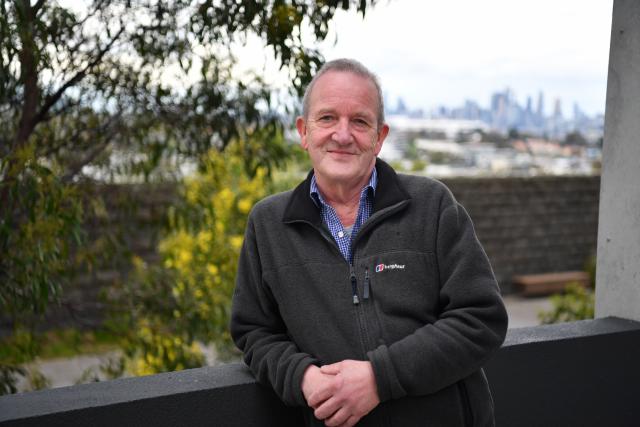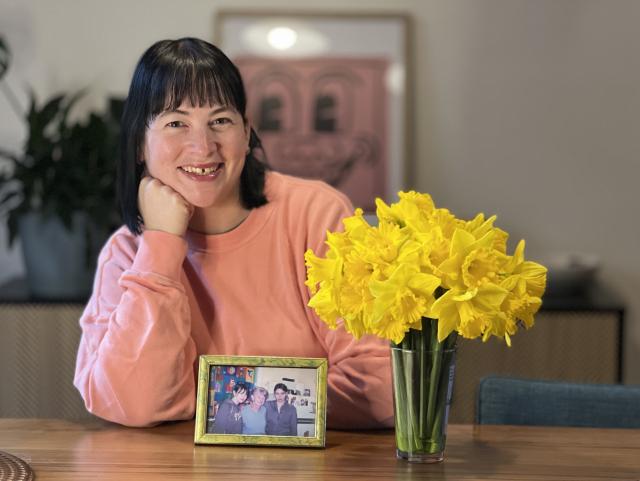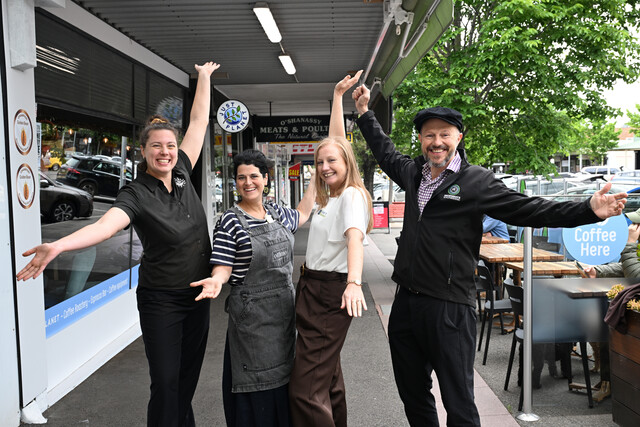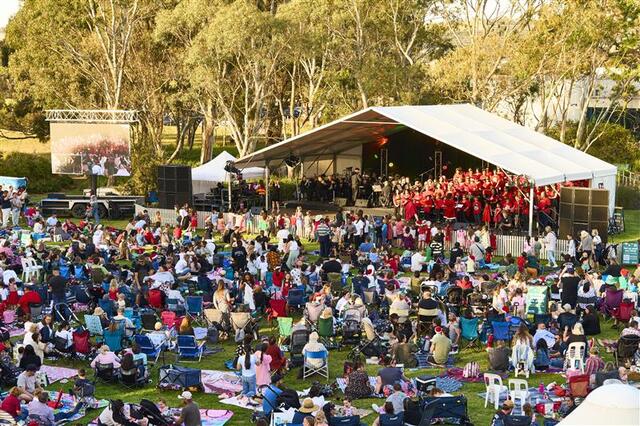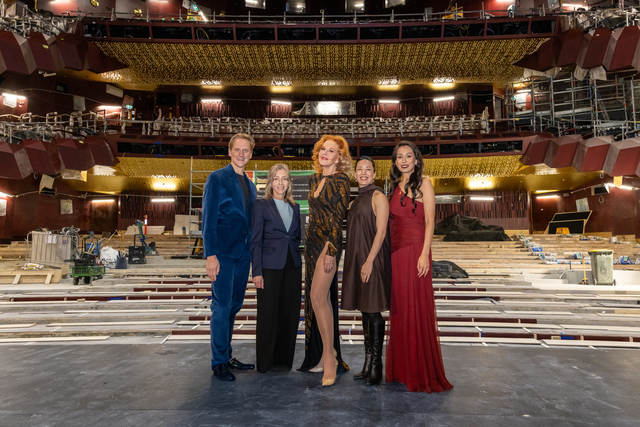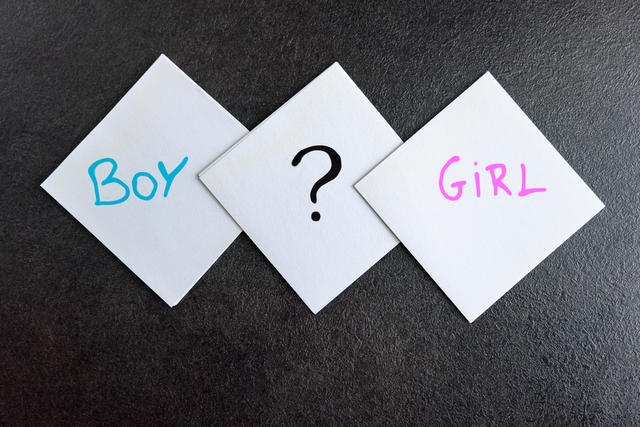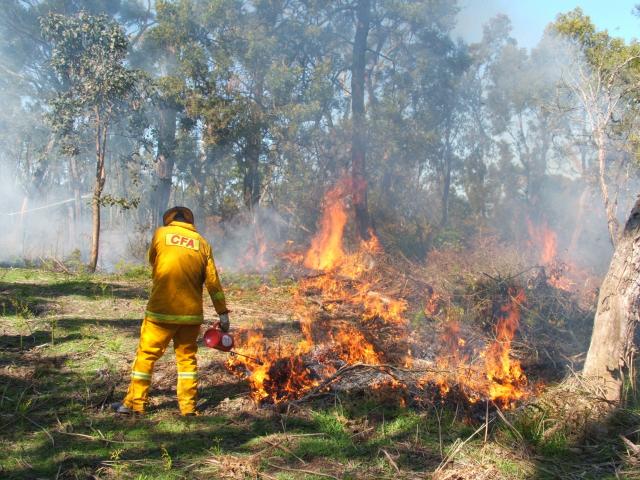The impacts of cancer are profound and reach far beyond those diagnosed. Ahead of Daffodil Day on Thursday, August 25, Matthew Sims spoke to people across the western suburbs about how cancer has affected their lives.
Giving back to those who have had everything taken away is the focus of this year’s Daffodil Day appeal.
Running throughout August, Cancer Council Victoria’s Daffodil Day campaign is culminating in Daffodil Day on Thursday, August 25.
On the 36th anniversary of Daffodil Day, a number of sons, daughters, mothers, fathers, granddaughters and grandsons within the western and northern suburbs of Melbourne will be commemorating the loved ones they have lost.
Maribyrnong resident Steven Robertson lost both his parents to cancer.
His father Ted, who was an army sergeant in World War II in Papua New Guinea, initially beat a carcinoma of the colon in 1980, but was then diagnosed with a metastatic renal carcinoma in January 2002, which impacted his kidneys and had spread to other parts of his body.
After undergoing radiotherapy, he died in early April later that year at the age of 78.
Only a short time after his father’s death, Mr Robertson’s mother was diagnosed with a primary peritoneal carcinomatosis, a rare form of cancer which starts in the thin layer of tissue lining the inside of the abdomen.
Despite undertaking chemotherapy and surgery in December of 2002, the doctors discovered the cancer had spread too far to treat and she died in April of 2003 at the age of 75.
Mr Robertson then received a diagnosis of an acoustic neuroma in May of 2017, after seeing his GP with a severe ache in his left eye and hearing loss.
Also known as vestibular schwannoma, it is a benign tumour which develops within the inner auditory canal on the balance and hearing nerves.
Surgery removed the tumour in October of 2017, impacting Mr Robertson’s balance and hearing nerves on his right side, leading to hearing loss in his right ear.
He said he has been able to retrain his body to balance.
“I am still active and live a normal life,“ Mr Robertson said.
He said his experience had shown him the value of spending time with family and friends and the immense impact cancer has on everyone.
“I’ve learnt to enjoy the precious time I have with everyone,“ Mr Robertson said.
“You appreciate the pain and suffering that people are going through.
“Don’t hide your symptoms.“
Williamstown resident Sarah Gill said Daffodil Day would be a special time for her to reflect and remember her grandmother, Gwen.
“This cause is very close to my heart as I lost my Nana to pancreatic cancer in 2005,“ she said.
“I do my best to fundraise every year for Girls Night In and I’ve been doing it since 2014.
“It’s important to me to raise funds for women’s cancers and promote health checks.“
Ms Gill said Gwen valued her independence and held onto that until her death.
“When I was in primary school, she helped me get ready for school and made our breakfast – toast with Vegemite and cups of tea,“ she said.
“Years later, when I was out of high school and working as a retail assistant at David Jones, Nana was given the diagnosis of pancreatic cancer,“ she said.
“She was told she had an inoperable tumour and was given three months.
“Even when faced with a terminal diagnosis, Nana didn’t want any fuss and I remember her telling me ’not to go getting upset,’ she had accepted it and it helped me to accept it too.“
Ms Gill said she was grateful that she got to spend her grandmother’s final moments at her side.
“During her illness, I took time off work to take care of her as she had done for me when I was young,“ she said.
“Nana stayed strong for six months and when she became too unwell to be cared for at home, she was admitted to hospital and passed away a few days later.”
Cancer Council Victoria fundraising and communications division head Lyrian Fleming-Parsley said Daffodil Day is a chance to reflect on the lives of loved ones that have died and support those within communities who have been affected by cancer.
“Unfortunately, cancer is one of those illnesses that affects everyone,“ she said.
“You don’t have to look far. This is a public way to show support.“
Ms Fleming-Parsley said the Cancer Council is hoping to raise $2 million as part of this year’s campaign.
Cancer Council Victoria chief executive Todd Harper AM said with 95 Victorians being diagnosed with cancer each day, the appeal is a chance to contribute to ongoing efforts to increase the survival rate.
“Cancer takes so much from all of us,” he said.
“It’s why this year, we’re calling on Victorians to give hope to those impacted by cancer by funding vital cancer research that is saving lives every day.
“Every person who donates or buys daffodils this August will be helping us to continue investing in life-saving cancer research programs, giving hope for better treatments and early detection and ultimately, giving us hope for a cancer-free future.”
Cancer Council and its partners have invested more than $290 million in world-class cancer research from 2016 to 2020, leading to a number of advancements in cancer prevention, screening and treatment.
Thanks to investment in research, advancements have been made in cancer prevention, screening, and treatment to increase the survival rate from 51 per cent in the late 1980s to about 70 per cent currently.
Stalls in Melbourne’s CBD will be selling daffodils on Daffodil Day or daffodils can be bought directly from the Daffodil Day website.
Details: www.daffodilday.com.au or www.daffodilday.com.au/s/4443/3388/s

